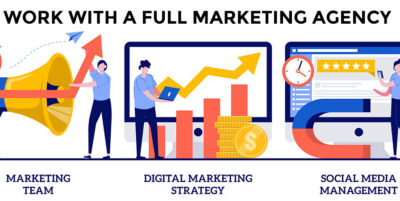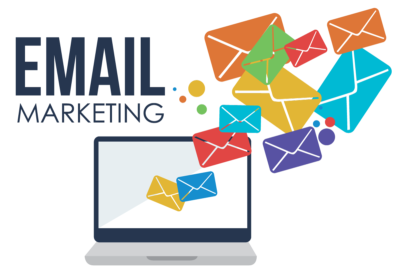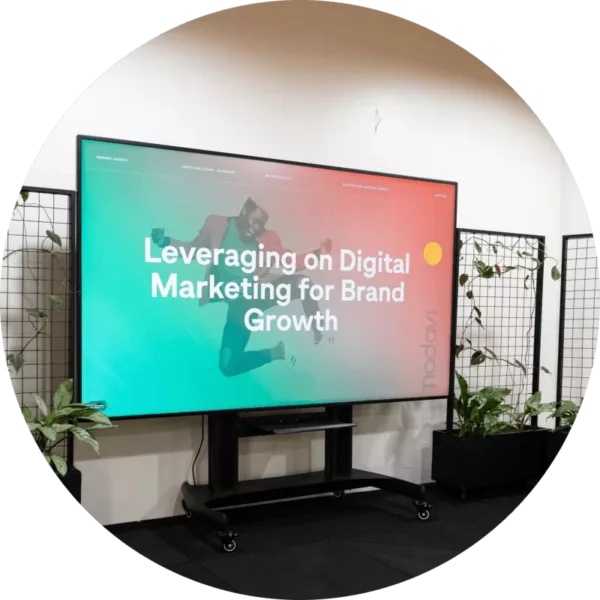Table of Contents
A Digital marketing agency specializes in creating and executing marketing strategies across various digital channels, such as social media, email, and search engines. By partnering with a digital marketing agency, you can leverage their expertise and resources to achieve unparalleled growth for your brand.
However, not all digital marketing agencies are created equal. When selecting an agency to partner with, there are several questions you should ask to ensure they’re the right fit for your business. For example, you should inquire about their pricing structure, core values, and KPIs.
1. Consider the Services Offered by a Digital Marketing Agency

What are the benefits of partnering with digital marketing agencies? They offer a wide range of services to help businesses improve their online presence, attract more customers, and increase revenue. In this section, will discuss some of the most common services offered by digital marketing agencies.
Search Engine Optimization

Search Engine Optimization (SEO) is the process of optimizing a website to rank higher in search engine results pages (SERPs). Digital marketing agencies offer SEO services to help businesses improve their website’s visibility in search results. This includes optimizing website content, building backlinks, and improving website speed and performance.
Pay-Per-Click Advertising
Pay-per-click (PPC) advertising is a form of online advertising in which businesses pay for each click on their ads. Digital marketing agencies can help businesses create and manage PPC campaigns on platforms like Google Ads and Facebook Ads. This includes keyword research, ad creation, and ongoing campaign optimization.
Social Media Management
Social media management involves creating and managing social media accounts for businesses. Digital marketing agencies can help businesses create and publish content on social media platforms like Facebook, Twitter, and Instagram. This includes creating social media calendars, designing graphics, and engaging with followers.
Content Marketing
Content marketing involves creating and sharing valuable content to attract and retain customers. Digital marketing agencies can help businesses create and distribute content like blog posts, infographics, and videos. This includes content strategy development, content creation, and content promotion.
Email Marketing

Email marketing involves sending promotional emails to customers and prospects. Digital marketing agencies can help businesses create and send email campaigns to promote products, services, and events. This includes email list management, email design, and email automation.
2. What Industries are they Specializing in?
As a digital marketing agency, it is important to clearly focus on industry specialization. By narrowing down your target industries, you can better understand each industry’s unique challenges and opportunities and tailor your marketing strategies accordingly. Here are some key industries to consider specializing in:
E-Commerce

E-commerce is a rapidly growing industry, with online sales expected to reach $6.5 trillion by 2023. With so many businesses vying for attention in the online marketplace, it is essential to have a strong digital marketing strategy in place. An e-commerce-focused digital marketing agency can help you optimize your website, improve your search engine rankings, and develop effective social media and email marketing campaigns.
Healthcare
The healthcare industry is highly regulated and complex, with unique challenges and opportunities for digital marketing. A healthcare-focused digital marketing agency can help you navigate the regulatory landscape, build trust with patients, and develop effective marketing campaigns that drive results. Whether you are a hospital, clinic, or private practice, a healthcare-focused agency can help you reach your target audience and grow your business.
Technology
The technology industry is constantly evolving, with new products and services emerging all the time. A technology-focused digital marketing agency can help you stay ahead of the curve, developing innovative marketing strategies that help you stand out in a crowded marketplace. Whether you are a software company, a hardware manufacturer, or a tech startup, a technology-focused agency can help you reach your target audience and drive growth.
Real Estate
The real estate industry is highly competitive, with many businesses vying for attention in a crowded marketplace. A real estate-focused digital marketing agency can help you stand out from the crowd, developing effective marketing campaigns that drive leads and sales. From search engine optimization to social media marketing, a real estate-focused agency can help you reach your target audience and grow your business.
3. The Client Onboarding Process

As a digital marketing agency, your client onboarding process is crucial to building a strong foundation for future relationships with your clients. A well-structured onboarding process can help you understand your client’s needs and goals and set the stage for a successful partnership. Here are the three key steps to a successful client onboarding process:
Initial Consultation
The first step in the client onboarding process is the initial consultation. This is where you get to know your client and their business. During this consultation, you should ask questions about their business, their goals, and their pain points. You should also explain your process and what they can expect from you. This is a good time to discuss the questions to ask a prospective digital marketing agency, such as proof of success with other companies like theirs, agency pricing structure, core values, and how success is measured.
Market Analysis
The next step in the client onboarding process is to conduct a market analysis. This is where you research your client’s industry, competitors, and target audience. This analysis will help you understand the landscape and identify growth opportunities. You can use tools like Google Analytics, SEMrush, and Ahrefs to gather data and insights.
Strategy Development
The final step in the client onboarding process is strategy development. Based on the information you gathered during the initial consultation and market analysis, you can develop a customized strategy for your client. This strategy should include specific goals, tactics, and timelines. You should also discuss how success will be measured and what KPIs will be used.
5. How do they Measure Performance Success?
One of the most important aspects of working with a digital marketing agency is understanding how performance will be measured. This section will cover two key areas of performance measurement: analytics and reporting, and ROI assessment.

Analytics and Reporting
Analytics and reporting are essential for measuring the success of digital marketing campaigns. A good digital marketing agency will have a strong understanding of analytics tools and how to use them to track and measure key performance indicators (KPIs).
Some of the most important KPIs to track include website traffic, conversion rates, and engagement metrics like click-through rates and time on site. By tracking these metrics over time, you can get a clear picture of your campaign’s performance and make data-driven decisions to optimize your strategy.
ROI Assessment

Measuring your digital marketing campaigns’ return on investment (ROI) is crucial to understanding their overall effectiveness. An excellent digital marketing agency will have a clear process for assessing ROI and will be able to provide you with regular reports on how your campaigns are performing.
When assessing ROI, it’s important to consider both the cost of your campaigns and the revenue they generate. Tracking these metrics over time lets you get a clear picture of your overall ROI and make informed decisions about where to allocate your marketing budget.
As you evaluate prospective digital marketing agencies, be sure to ask about their approach to performance measurement. What KPIs do they track, and how do they use analytics tools to measure success? What is their process for assessing ROI, and how do they report on campaign performance? By asking these questions upfront, you can ensure that you find an agency that is committed to delivering measurable results.
Case Studies
If you’re considering hiring a digital marketing agency, it’s important to evaluate their past performance. One way to do this is by examining their case studies. Case studies are real-life examples of how an agency has helped other businesses achieve their marketing goals.
Success Stories
A reputable digital marketing agency should have a portfolio of success stories that demonstrate their ability to deliver results. Look for case studies that are relevant to your industry and business size. For example, if you’re a small business, you want to see case studies that show how the agency has helped other small businesses grow.
When reviewing case studies, pay attention to the agency’s metrics to measure success. Did they focus on increasing website traffic, generating leads, or improving conversion rates? Make sure the agency’s goals align with your own.
Client Testimonials
Another way to evaluate a digital marketing agency is by reading client testimonials. These are quotes or reviews from past clients that describe their experience working with the agency.
Client testimonials can provide valuable insight into an agency’s communication style, work ethic, and overall performance. Look for testimonials that mention specific results or outcomes. For example, a client may say that the agency helped them increase their website traffic by 50% in three months.
By doing your due diligence and evaluating an agency’s case studies and client testimonials, you can decide which agency is the best fit for your business.
6. What is their Agency Culture and Values?

When choosing a digital marketing agency, it’s important to consider their culture and values. The agency’s culture will influence how they work with you and how they approach their work. A strong culture can lead to better teamwork, innovation, and higher quality work. Here are some things to consider when evaluating an agency’s culture and values.
Team Expertise
One important aspect of an agency’s culture is the expertise of its team. You want to work with a team with experience and knowledge in your industry and the specific digital marketing channels you want to use. Ask the agency about the qualifications and experience of their team members. Look for evidence of success with other companies like yours. You want to work with a team that can bring fresh ideas and insights to your marketing strategy.
Innovation and Creativity
Another important aspect of an agency’s culture is its approach to innovation and creativity. You want to work with an agency that is willing to take risks and try new things. Ask the agency about its approach to innovation and how it encourages creativity among its team members. Look for evidence of innovative campaigns or strategies it has implemented for other clients.
In conclusion, when choosing a digital marketing agency, it is important to ask questions about their industry. Do they have experience working with companies like yours? What are their core values? How do they measure success? By asking these questions, you can ensure that you work with a knowledgeable and experienced partner who can help you achieve your business goals.









